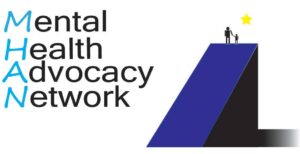MHAN believes that these services should be included and adequately funded (not volunteer, but with fair wages and benefits) in every region of the state through Regional Recovery Centers (increased staff, technology, facility improvement and transportation), family and consumer run non-profits, or other appropriate outlets. Schulte agrees: “The use of peers, family support peers, recovery coaches and other persons with lived experience, is an evidence-based practice and a growing national trend with good treatment outcomes. In rural areas, with behavioral health professional shortages, like North Dakota, using peers and other interested persons like teachers, law enforcement personnel, emergency workers, etc. are instrumental to expanding the workforce. In addition, increasing the number of out-stationed workers in the community is key to improving access to services.”
